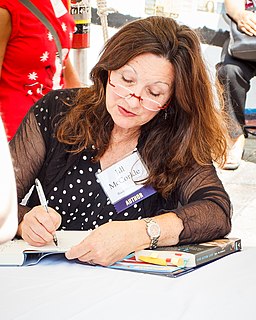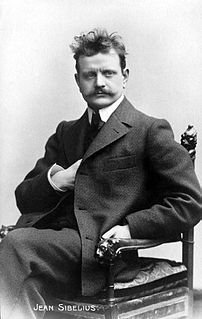A Quote by Paul Lansky
With a piece of classical music by Haydn, Mozart, or Beethoven, on first listening I'm referencing it with other pieces by them that I know. I think that most people do this - they listen to pieces through the filter of pieces they already know.
Related Quotes
The time I like listening to music most on headphones is, I have a game I play with my brother, he's a musician as well.And he sends me MIDI files of keyboard pieces. So, these are pieces where I just get a MIDI file; I don't know what instrument he was playing them on; I know nothing about his section of the sound of the piece, and then when I'm sitting on trains I do a lot of train travel I turn them into pieces of music. And I love to do that; it's my favorite hobby.
In period pieces or genre pieces, those have to be set in historical truths. But, science fiction has different game pieces. And with those game pieces come other stories we're not familiar with. So, science fiction teaches us how to relate to outsiders, to foreigners, and to not approach any of that with fear, but a genuine curiosity.
I came to what I think of as the critical problem: the aging process of a piece of music. I noticed in the '70s that pieces I wrote would sound great the first time I listened to them and then on repeated hearings they sounded older and older until what seemed exciting and vibrant on first listening became stale.
I feel very protective in the first draft, when all the pieces are coming together. I work in a way that is not linear or chronological at all, even with the short story. I will just be writing bits and pieces, and then when I have all the pieces on the table, that for me is when it feels like the real work begins.
I like to find the beauty in the ugly. When I'm in a thrift store, I gravitate toward pieces I know I'll wear a ton, and insane pieces that I'm sure most people would consider gross. But I find them inspiring. Our van is currently stocked with some of my random findings from this tour. Maybe I'll call my aesthetic 'van fashion.'
I like to find the beauty in the ugly. When I'm in a thrift store, I gravitate toward pieces I know I'll wear a ton, and insane pieces that I'm sure most people would consider gross. But I find them inspiring. Our van is currently stocked with some of my random findings from this tour. Maybe I'll call my aesthetic 'van fashion.




































